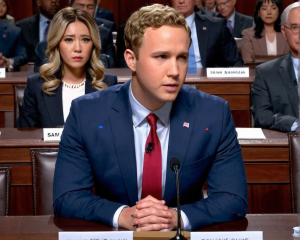Introduction: Rising Tensions in Crypto Regulation
The recent actions taken against Ooki DAO by the Commodity Futures Trading Commission (CFTC) have amplified the ongoing tensions between traditional regulatory frameworks and the burgeoning world of decentralized finance (DeFi). As the fallout from the FTX crisis continues, these developments have sparked significant concerns within the crypto community regarding the future of decentralized structures and the implications of regulatory overreach.
Background: The CFTC’s Action Against Ooki DAO
On November 10, the CFTC imposed a $250,000 fine on Ooki DAO, citing illegal off-exchange trading of digital assets. The agency’s ruling raised alarms, as it indicated a leveling of accountability not just on founders of such decentralized entities but potentially on their users as well. This scenario raises critical questions about how regulatory bodies perceive and interact with DAOs, traditionally viewed as regulation-proof architectures.
“DAOs are not immune from enforcement and may not violate the law with impunity,” stated the CFTC.
Market Reaction: The Broader Impact on Crypto
Following these developments, many companies in the crypto space found it prudent to distance themselves from the implications of the FTX crisis. Firms like Tether, Circle, Kraken, and Coinbase have openly declared their lack of exposure to FTX, outlining their commitment to maintaining transparency. However, the consequences of the CFTC’s ruling resonate beyond a single entity, casting a shadow over the entire ecosystem and contributing to heightened wariness among investors.
Regulatory Overreach and Its Consequences
The looming regulatory scrutiny raises significant concerns for developers working within the crypto space. Legislation such as the Stabenow-Boozman bill could grant the CFTC centralized oversight of crypto tokens deemed as digital commodities, compelling exchanges to register and adhere to frameworks that may stifle the innovation inherent to DeFi platforms. Such actions risk creating an environment that centers around centralized control, which many in the community actively seek to circumvent.
Coping with Complexity: The Need for Clarity
Ambiguities surrounding crypto regulations create confusion for developers on what constitutes acceptable practices. The complexity of tracking microtransactions, airdrops, and staking rewards further complicates compliance with tax reporting and regulatory obligations. As policymakers push for regulations that may seek to govern emerging technologies, it remains crucial for the regulations to adapt in a way that recognizes the unique characteristics of decentralized projects.
A Path Toward Complete Decentralization
Despite the skepticism and hurdles, there is a potential silver lining in the push for complete decentralization. As crypto developers contend with regulatory pressures, the design principle behind Bitcoin—eliminating central points of failure—might serve as the foundation for future protocols. A future where blockchains function independent of identity requirements and Know Your Customer (KYC) regulations may be necessary for developers wanting to innovate fearlessly.
Conclusion: The Road Ahead for Crypto in the U.S.
The ruling against Ooki DAO serves as a warning for U.S. developers regarding the encroaching influences of regulatory bodies on cryptocurrency innovation. While navigating this evolving landscape presents challenges, there remains an opportunity for the establishment of decentralized frameworks insulated from conventional oversight. Ultimately, the future of cryptocurrency will depend on the ability to foster environments that allow innovation to thrive while navigating the complexities of regulatory frameworks.















+ There are no comments
Add yours